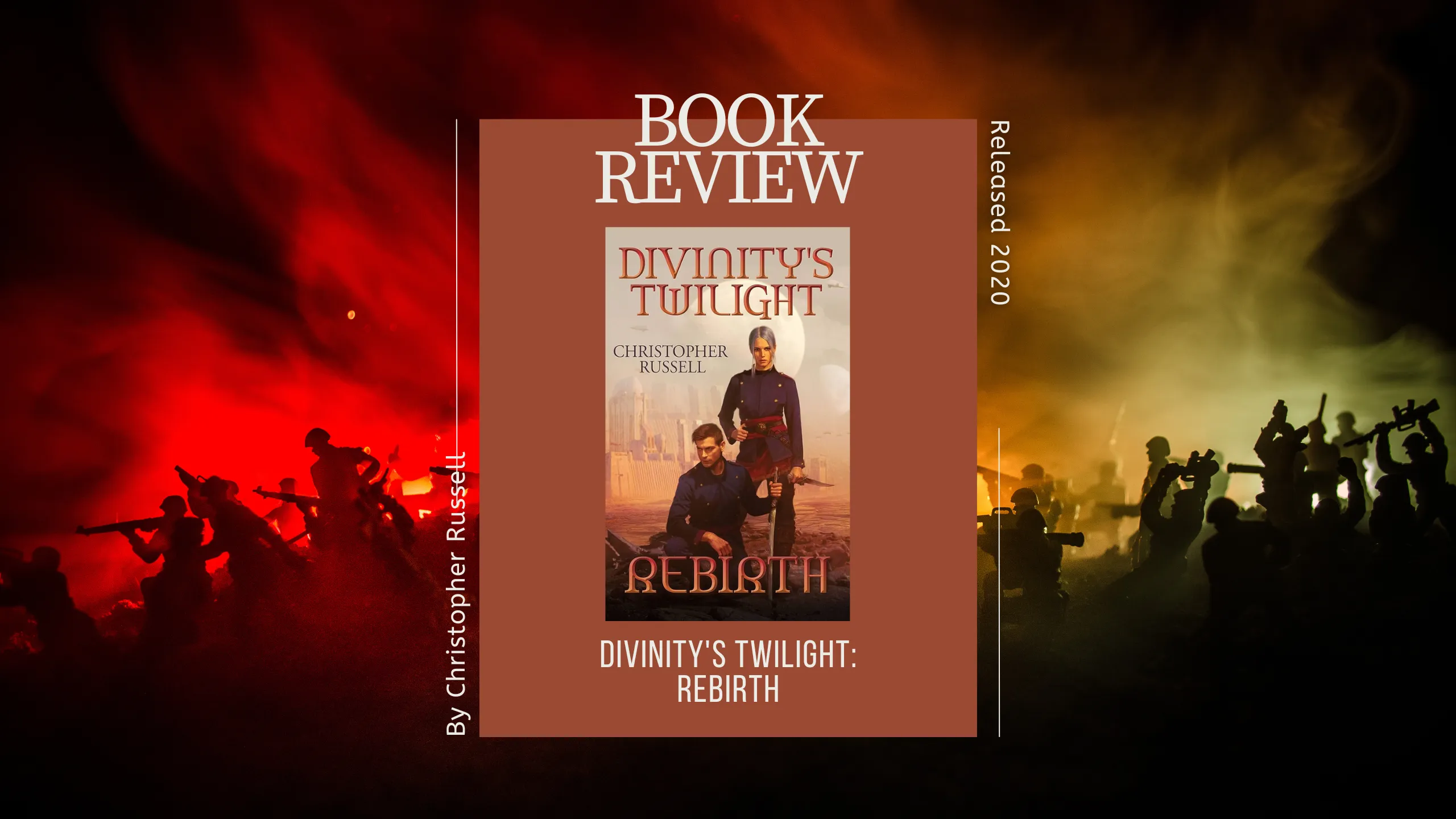A sprawling science-fantasy epic with incredible ideas and detailed world-building, that knows how to pull it’s audience into the lore.
To say this novel starts with a bang is an understatement. You’re launched into the midst of a pivotal historic war that beautifully captures the world, the magic system and the foundational lore for the overarching story. The novella-length prologue could quite easily be released as a standalone piece, and would — I’m fairly certain — be critically acclaimed. I found no fault with it’s pacing, the action, the world that Russell constructed, and the larger than life characters that form the chess pieces in the final act of the world’s historical war.
Despite the incredible opener, the pacing throughout the rest of the novel is one of the main issues with this otherwise well constructed narrative.
The first part of the book introduces you to a slew of characters that are fully-fleshed, believable, conflicted and well-grounded. A heist that goes wrong, with a crack-team of soldier spies who must find a way to escape the enemy territory unscathed. This part of the book, combined with the prologue had me hooked and immersed completely into the lore of this world. It’s just such a pity that none of these characters end up influencing the greater story, and are largely discarded by the time the second part of the book rolls around.
Due to this unconventional structure, we don’t meet our primary protagonist until almost a third of the way through the book. Instead of being able to capitalise on the momentum generated by the stellar first part of the story, we are now forced to wind it back and enter a new phase of slower-paced character introductions in order to develop a new protagonist after the previous one was unceremoniously discarded.
Whatsmore, when we do meet Vallen — the chosen one with a special magical ability — he’s revealed to be childish, petty, and a bully, surrounded (largely) by enablers. The other characters seem to see his brilliance, but I’m left with a sour taste everytime he enters a scene. Throughout the entirety of the next part of the novel, I found myself deeply desiring his downfall. It would be as if Draco Malfoy was the protagonist of Harry Potter, and his treatment of others seemed celebrated and encouraged by those around him, and also by the author.
This is not an unheard-of trope; creating a character that requires significant growth is a popular storytelling mechanism, but when these pseudo-villains eventually turn into heroes, they’ve earned their reprisal through the trials they’ve been put through. However, in Vallen’s case, his brashness has catastrophic results, and on top of this, he ended the book with the same attitude and mindset as he entered with. There was no development arc to his character, just ample demonstration of his exceptional magical ability and also his exceptional capacity for being a dick to everyone around him. There were flashbacks that attempted to humanise him, a way to allow us into his personality a bit more, but these felt contrived, since I actively didn’t want to get to know him more.
Despite these issues, my opinion of the story was rescued by the other characters — I’m eternally thankful that Russell gave us a more fully developed secondary protagonist in the form of Matteo, whose development arc was heartfelt and meaningful, along with Velle and Sylette. These characters outshone Vallen in terms of their depth and believability, but also even when they made incorrect or perhaps immature choices, you understood them more, so you wouldn’t ever feel like their presence harms the storyline.
If I was to use this book to evaluate the author’s strengths, I would put the world-building up top, with its magic system, political situation, and technology. There’s an establishment of a baseline level of societal advancement via magic early-on with the copious use of air travel and firearms, but beneath this are lots of hints of a precursor magic system underpinning it (Old Magic), which adds a sense of history to the world that many other authors have sometimes failed to consider. The races of people he’s created have recognisable traits, strengths and weaknesses, each of which we get to experience as part of the incredible prologue battle — traits which are explored in more detail throughout the story.
Additionally, Russell is a master at constructing intense and catastrophic military engagements, with well-paced battles and situations where the reader almost feels the sheer terror that the inexperienced cadet characters are feeling whilst enduring these sometimes overwhelming assaults. When the characters exit an engagement by only a hair’s breadth of success, I believed it, and felt each of the character’s internal tensions.
All in all, Divinity’s Twilight: Rebirth presents a satisfying narrative, with some incredible set-pieces backed by a world that has a laudable depth… I just found myself wishing that the protagonist (Vallen) wasn’t a part of the book, or at the very least, was relegated to a supporting role.
